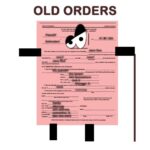 What do you do when your eviction order gets old?
What do you do when your eviction order gets old?
In case you missed it, the Cook County Sheriff is now warning plaintiffs in Cook County eviction cases that the delays in enforcement as a result of inclement weather could put the plaintiff’s eviction order in jeopardy. What exactly happens when an eviction order gets “too old”?
Well, we look to the Illinois statute at 735 ILCS 5/9-117 with respect to the expiration of a judgment for possession. That statute says, in part:
No judgment for possession obtained in an action brought under this Article may be enforced more than 120 days after judgment is entered, unless upon motion by the plaintiff the court grants an extension of the period of enforcement of the judgment.
The statute provides a procedure to “extend” the validity of an order for possession. Basically, the plaintiff needs to motion the court to extend the period of enforcement of the judgment. This requires drafting and filing a motion and providing notice of motion to the tenant/defendant in the eviction case. The statute provides that there is certain language that MUST be included in the notice of motion to the tenant as follows:
“Your landlord, (insert name), obtained an eviction judgment against you on (insert date), but the sheriff did not evict you within the 120 days that the landlord has to evict after a judgment in court. On the date stated in this notice, your landlord will be asking the court to allow the sheriff to evict you based on that judgment. You must attend the court hearing if you want the court to stop the landlord from having you evicted. To prevent the eviction, you must be able to prove that (1) the landlord and you made an agreement after the judgment (for instance, to pay up back rent or to comply with the lease) and you have lived up to the agreement; or (2) the reason the landlord brought the original eviction case has been resolved or forgiven, and the eviction the landlord now wants the court to grant is based on a new or different reason; or (3) that you have another legal or equitable reason why the court should not grant the landlord’s request for your eviction.”
I would imagine that not many landlords would be excited about the fact that they have to send a tenant a notice that explains various ways a tenant can “stop” the eviction! The most troublesome of those being the third item: any “legal or equitable reason why the court should not grant the landlord’s request for your eviction”. More procedure. More paperwork. More time in front of a judge and more opportunity for the tenant to make arguments as to why they should not be evicted.
Keep in mind, there can be reasons other than the weather that an order might not be enforced within 120 days from its entry. Sometimes landlords and tenants agree to a long stay period. If the landlord agrees to a 90 day stay of enforcement and the Sheriff takes more than 30 days to get out to evict the tenant, the order will be stale. Similarly, an order may be entered and a tenant may file post-judgment motions (for extra time, to vacate the order, for reconsideration, etc.) and the procedural fight over these issues could eat up part of those 120 days casing the landlord to need to get an extension.
The statute provides that the court “shall grant” the plaintiff’s motion for extension “unless the unless the defendant establishes that the tenancy has been reinstated, that the breach upon which the judgment was issued has been cured or waived, that the plaintiff and defendant entered into a post-judgment agreement whose terms the defendant has performed, or that other legal or equitable grounds exist that bar enforcement of the judgment.” From the time the order is extended, it shall be valid for another 120 days from the date of the order for extension.
Hopefully, the Sheriff’s backlog will be dealt with sooner rather than later, but landlords need to be aware that weather delays can cause additional headaches for plaintiffs in Illinois eviction cases.

Does this order of possession expiration pertain to a condo owner who was served the order for back unpaid assessments ?
The 120 day rule applies to all orders for possession brought pursuant to the Illinois Forcible Entry and Detainer Act.
It is may 6th, I expect to have an order of possession given on May 8th with a one week stay. How long at this present time, now that Spring is finally here, is the Sherriff presently talking to effect the eviction? thank you in advance for your answer
My most recent anecdotal evidence suggests about 6-8 weeks. That’s unscientific.
Is there any way to find out how long one might have before sheriff comes to evict us? Anything documented or number to call to find out how many eviction are ahead of us? We haven’t found a place yet and are worried because we have children all summer out of school.
No. In theory, tenants should begin looking for new housing as soon as the eviction order for possession is entered.
My 120 days is up on the 16th of Aug. Should the sherieffs not show up Friday the 15th should I anticipate another court date where the landlord asks for an extension? If so he then still has to file with the Sheriffs office again? My place flooded 3 times and I lost everything I can not afford to move until the 2nd week of September and I am hoping the expiration will buy me more time, do you think that is the case?
My official position is that tenants should vacate once a judge’s order for possession expires. If you believe you have some tenant’s rights, you should contact a tenant’s rights attorney.